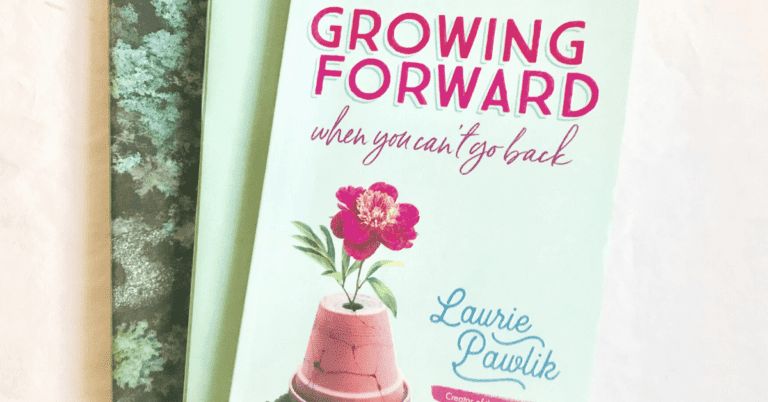How a Can of Paint Taught Me about Self Forgiveness
I’ve always held myself to high standards and struggled to forgive myself my mistakes. But my daughter and an exploding can of paint opened my eyes and taught me to forgive myself.
“I Can’t Believe You’re Not Upset.”
The footsteps mounting our stairs slowly and deliberately should have signaled to me that something was wrong, but I was too busy trying to get out the door to notice that my then-seven-year-old daughter wasn’t pounding up them at her usual break-neck speed.
“Mom?” came a timid call from this boisterous daughter, whose presence never goes unnoticed.
“Yeah?” I called back, frantically throwing snacks into the diaper bag on the kitchen counter.
“Come.”
Frustrated, I put everything down and went into the living room, where I found my seven-year-old standing at the top of the stairs, covered from head-to-toe in dripping, white latex paint.
Too stunned to speak or move, I stood there gaping at her. I looked past her and saw the walls lining the stairway—which I’d only hours before finished painting a midnight blue—were now splattered halfway up in this same white paint, which I’d used to paint the trim. We were trying to get to the airport to pick up a relative, and I had asked her to put the can of paint back in the garage before we left.
As she tried to set the can down and open the garage door, the handle had slipped from her grasp, sending the can crashing to the floor and the paint—seemingly defying the rules of physics—managed to cover everything in our foyer (jackets, shoes, stroller, daughter), make a three-hundred-degree turn, and splash halfway up the stairs.
My heart sank at the thought of all my hard work wasted and the amount of time it would take me to clean the mess, but I couldn’t focus on that now. I had to help my daughter.
I grabbed her hand and pulled her quickly into the bathroom, put her in the tub fully clothed, and blasted her with warm water until I could see the skin on her face again. I scrubbed her and washed her hair over and over until the black curls resurfaced, and then tried to salvage both our outfits by pouring rubbing alcohol over them. (Homemaking aside: it worked!)
When she was all cleaned up, I called my husband and asked him to pick up the relative so we could stay home and clean the paint before it dried. It took hours to wash the paint off the walls, stairs, and tiles. My daughter helped me, and while we scrubbed, she kept saying, “I’m so sorry, Mom. I didn’t mean to. I can’t believe you’re not upset.”
Upset? Why would I be upset? I was so worried about her, so concerned for her safety, that it hadn’t occurred to me to be upset. Disappointed about all the extra work? For sure. But upset? No way.
“At least we’re going to have a really good story to tell after this,” I said, trying to cheer her up.
Why Is It So Hard to Forgive Ourselves?
The incident reminded me of the day when I, at eight years old, had decided to iron my shirt one morning before school. I don’t recall whether I had used an iron before that, but for some reason, my mother trusted me to do it. I took off my shirt and stood at the board—bare-chested—gliding the heavy iron over the fabric. How it happened, I don’t recall, but the iron toppled over and landed on my stomach, searing my skin.
I thought of my mother, who was in the shower at the time, and how she’d warned me to Be careful. I knew I would be in trouble, so I didn’t tell her. Instead, I lay down in my bed and cried through the pain until she came looking for me ten minutes later, demanding to know why I wasn’t ready for school.
When I confessed what happened, she was as shocked as I was mopping up that paint twenty-odd years later. How could our treasured children think we’d be upset about such unintentional mistakes? Our reaction as mothers was, of course, not to be angry, but to be filled with overflowing love and compassion for our children, desperately seeking to help them overcome the painful results of the actions they’d taken in good faith.
New Mercies Each Morning
Since the day of the explosive paint, I’ve tried to remember that this is how our Father in Heaven sees us when we make mistakes, too.
When we get it wrong—which we so often do—we are quick to tear ourselves down and slow to forgive ourselves. I’m not good enough. I mess everything up. God is disappointed in me.
But Jesus regards us with a Steadfast love that never ceases; with mercies that are new every morning. (Lamentations 3:22-23). Just as we don’t blame our children for their mistakes, He forgives us continually and pours out His love, calling us into bigger and better works.
As Paul wrote:
“One thing I do: forgetting what is behind and straining toward what is ahead, I press on toward the goal to win the prize for which God has called me heavenward in Christ Jesus.” (Philippians 3:13-14).
As I hold this memory of my daughter, and that of my trembling child-self in my heart, I strive to forgive myself my own mistakes and concentrate instead on that which He has called me forth to do. I’m learning not to dwell on the past, but to believe that He will work all things—even my failures—for the good of those who love Him (Romans 8:28).
And if He—in His eternal flawlessness—can forgive us, how can we not extend that same mercy to ourselves? We must learn to forgive ourselves so that we can get on with the work He has planned for us.
How about you? Do you find it hard to offer yourself mercy? How have you learned to let go of your past mistakes and move on?







